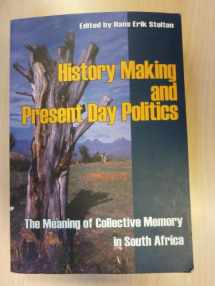
History Making and Present Day Politics: The Meaning of Collective Memory in South Africa
Book details
Summary
Description
In this collection, some of South Africa’s most distinguished historians and social scientists present their views on the importance of history and heritage for the transformation of the South African society.
Although popular use of history helped remove apartheid, the study of history lost status during the transition process. Some of the reasons for this, like the nature of the negotiated revolution, social demobilization, and individualization, are analyzed in this book.
The combination of scholarly work with an active role in changing society has been a central concern in South African history writing. This book warns against the danger of history being caught between reconciliation, commercialization, and political correctness.
Some of the articles critically examine the role of historians in ideological debates on gender, African agency, Afrikaner anti-communism, early South African socialism, and the role of the business world during late apartheid. Other contributions explore continuing controversies on the politics of public history in post-apartheid South Africa, describe the implementation of new policies for history education, or investigate the use of applied history in the land restitution process and in the TRC. The authors also examine a range of new government and private initiatives in the practical use of history, including the establishment of new historical entertainment parks and the conversion of museums and heritage sites.
For readers interested in nation building processes and identity politics, this book provides valuable insight.


We would LOVE it if you could help us and other readers by reviewing the book
Book review



